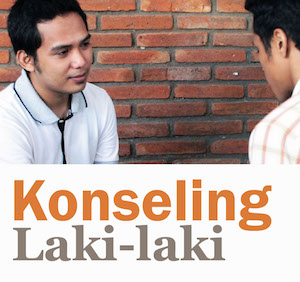For some people, marriage is the most important thing in life. This is because when we decide to marry, it means we are deciding to live a new life where the impact will last a lifetime. Marriage is not just two people in a relationship as a couple, but also the relationship of two families with different backgrounds and different cultures. When deciding to get married, everyone naturally expects the marriage to be harmonious and lasting. In addition, any issues that occur after the wedding are expected to be faced and accounted for privately between the couple. For that, there are some things that need to be considered by both spouses, to ensure wedding decisions are able to be reached and not one party feels agitated or concerned.
- Build conscious commitment from both parties
Marriage should not be forced. Because when something is undertaken out of force it will often not work well, causing many problems in the future.
- Make an agreement on the Division of roles in the family
Within the family there is often a division of the roles, regarding who will work to meet the family’s financial needs, and who will take care of the home and the children. When both partners wish to work outside the home, the issue of dividing parenting and house tasks must be addressed. It is important in this situation to not create a workload imbalance, where one parent feels they are experiencing double the work burden.
- Agree upon where to live after marriage
Generally after the wedding, the wife will join where her husband lives. But it would be better if the matter of residence was discussed in advance, in order to make each person feel comfortable with the choice made.
- Discuss at the beginning of the number of children the couple want to have and how soon they want to have them
This should be discussed in advance so it does not become a problem in the future. In addition, there should be a discussion to determine how ready both partners are to have a child.
- Acceptance of the couples’ families
As stated earlier, in Indonesian culture marrying a person also means marrying their family. Thus, each party must be able to build a good relationship with the couple’s families. This is because failed marriages can be triggered by a bad family relationship. Furthermore, excessive family intervention may also trigger or increase conflict within marriage relationships.
In addition to the above considerations, many couples are also already experiencing turmoil or uncertainty ahead of the wedding. Sometimes, although each spouse is already committed to marriage, there are things that make them hesitant to continue with the wedding plans. Uncertainty may arise purely from within the couple itself, or even from the influence of outside parties. Uncertainty about marriage is very natural, the couple may question whether they are ready for marriage, or if their partner is the right person for them, and so on. But there may also be turmoil caused by outside parties for example, from the extended family or local community. Families and communities often make unnecessary demands, which may not be in accordance with our expectations for example, enforcing their concept of marriage, wedding expenses, and other things. Not to mention, sometimes families have their own standards about the ideal husband or wife and we are required to follow that standard. For example, ideals regarding who will work outside the home, and who will be primarily responsible for parenting the children, and taking care of other household duties. The turmoil caused by the above factors can actually be resolved if the couple aim to understand each other and make mutual agreements on how to solve it.
In addition, effective communication also needs to be established within the family, so that both are able to understand the desires and abilities of their spouse. If that is not done, it could be that the marriage plan is not executed or is carried out in a forced and conflicted manner. Building an agreement needs to be done before the marriage, so that the marriage will run in accordance with the rules agreed upon. Each spouse can make different agreements in accordance with their own personal conditions and wishes. For example, the things that can be agreed upon may regard who will work for a living, what are the things that shouldn’t be done and others.
In addition, it is possible also to agree on the consequences of what is given if one of the parties violates the rules. For example, if one partner has an affair and the couple consequently split up. Things to consider when establishing an agreement with a partner, is to ensure there is an equal relationship between the two parties. Each must respect and value the input from their partner. The agreement must be accepted voluntarily and without coercion from either the spouse or from outside parties. Thus, it is hoped that the marriage plan can run smoothly and the marriage will work well.
-------
Translated by Kathleen Sherrin, intern student from Charles Darwin University, Australia








